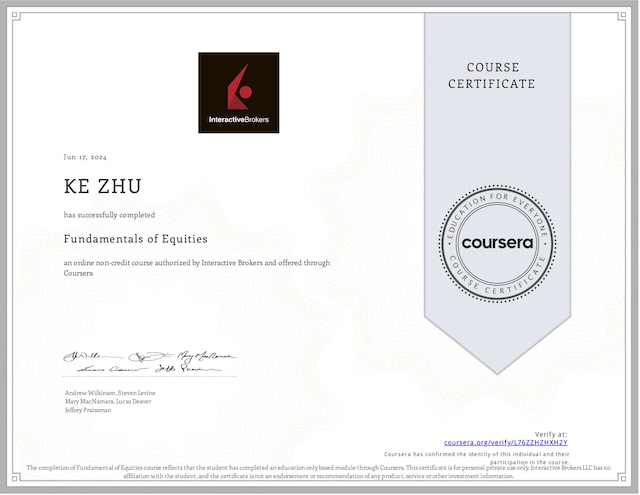It takes long for ideas to develop. We might be excessively fearful or unwillingly to change. Risk management has a history of thousands years, it is a technology that has been very slow to develop. There is an inherent conservatism and mistrust of new financial arrangements. Financial innovation is a pillar of our civilization.
People seem to like gambles that involve small amount of money lost with high probability and a large money gained with low probability. We have to try to turn the natural risks into something more appealing. Re-frame risk so that they are appealing.
Limited Liability
Investors, in order to be encouraged to invest in businesses, should have protection against liability for what the managers of the business do. This is human factor engineering. Investor psychology favors limited liability. If they are not limited liability, investors tend to overestimate the minuscule probability of loss. Just as when they buy lottery tickets, they overestimate the minimal probability of winning. Limited liability created a sort of lottery effect, and the whole idea of holding a diversified portfolio. We know there is risk management power in the diversification.
Inflation Indexed Debt
Currency is unstable, especially if the government prints it. You want to tie the debt contract to the index like consumer price index. This is obvious but in real life rarely happens.
“Unidad de fomento” means units of development. Money has several functions: a store of value, a unit of account, and a means of transactions. Unidad de Fomento (UF) is invented to be allowed to tie to the consumer price index.
Efficient Market Hypothesis
There is a concept in behavioral economics called Representativeness Heuristics. People don’t behave like forecasters, they think that something they saw in the past, is representative of what will happen in the future.
The reason efficient market sounds plausible is you have to educate people out of naive ideas that they can predict the market. If you read something in the news paper last week, it is already incorporated into the market prices. Those prices in markets are the result of people trying to figure out values, and if we did not have the markets, we would not know that anything was worth. All these prices are relevant to an intelligent decision, they are better knowledge than any individual because it involve so many people of all putting their money on the line and trading them.
The efficient markets hypothesis has taken a hit after the financial crisis.
There are 3 forms for market efficiency:
| Weak form | prices incorporate information about past prices, which can not help you forecast |
| Semi-strong form | incorporate all publicly available information |
| Strong form | all information including inside information |
Random Walk Hypothesis
A random walk xt = xt-1 + εt is a process that changes in such a way that each change is independent of previous changes and totally unforecastable. There was an idea that the stock market prices are really random walks, it is all an illusion that you think you can forecast it. You should not try to forecast it, you should just hold a diversified portfolio. But psychologically we are not attuned to understand the random walk.
An alternative to random walk is the first-order autoregressive (AR-I) model, when ρ = 1, it is just random walk.
xt = s + ρ (xt-1 - s) + εt, where s is starting pointPrice as Present Discounted Value
There is an idea that the price of a stock should be the present discounted value of expected dividends. Suppose earnings = dividends, which grow at long-run rate g, then by Gordon Model:
Price = Earnings / ( r - g )
or
Price / Earnings = 1 / ( r - g )Efficient markets theory purports to explain why some companies are priced higher relative to their earnings than others. If a company is priced high relative to earnings, it would either:
- it is low risk r as measured by β, so we are willing to pay more for it, or
- people have reason to think that the growth rate g is high
Low P/E ratio does not mean that the stock is a bargain, it only means that earnings are rationally forecasted to decrease in future.
Behavioral Economics
Expected utility theory
The economic profession tends to use the idea that everyone has a utility function, which depends on the things that they consume and it represents their happiness. In a world without uncertainty, people will choose how much to buy at the market prices to maximize their utility function. If there is uncertainty, then people use the probabilities of possible events to calculate the expected utility and the maximized expected utility.
Prospected Theory
Kahneman and Tversky were criticizing the core theory (expected utility theory) of economics, and they are replacing it with a constructive alternative. Psychology experiments do not align with the assumptions of traditional economics. Prospect theory is a experimentally based set of knowledge about mistakes that people make.
Kahneman and Tversky changed two things in expected utility theory:
- replace the utility function with a value function
- replace the probabilities with subjective probabilities determined by a weighting function in terms of the actual probabilities.
Logical Fallacies
Wishful thinking bias is a term used in the psych literature, people overestimate the probability of the things that they identify with and want to see happen. Cognitive dissonance is a term used by social psychologist. It refers to the mental conflict that occurs when one’s beliefs are discovered to be wrong. The brain also has other logical fallacies like mental compartments, attention anomalies, anchoring, representativeness heuristic, disjunction effect, magical thinking, quasi-magical thinking, culture and social contagion and anti-social personality disorder.
My Certificate
For more on Financial Markets, please refer to the wonderful course here https://www.coursera.org/learn/financial-markets-global
Related Quick Recap
I am Kesler Zhu, thank you for visiting my website. Checkout more course reviews at https://KZHU.ai



